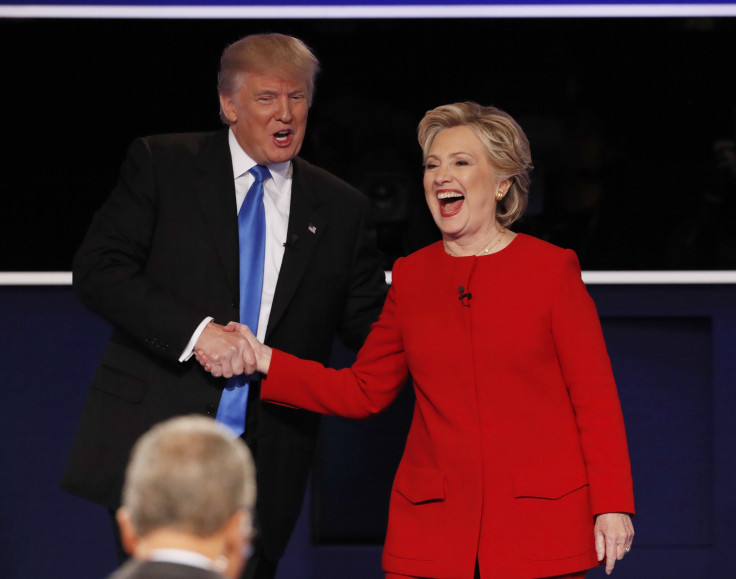Hillary Clinton Fact Check: Did She Try To Close The Carried Interest Loophole? Donald Trump Says She Didn’t

Hillary Clinton’s ties to Wall Street have been an issue throughout the 2016 campaign, and Donald Trump has accused her of favoring a tax loophole that benefits her financial industry donors: the so-called carried interest loophole. “Hillary Clinton has friends that want all of these provisions, including the carried interest [provision],” Trump said in Sunday night’s debate. “That's very important to Wall Street people, and they want the carried interest provision and it's interesting why she is leaving carried interest.”
The loophole allows money managers to collect their fees in the form of carried interest and pay the much lower capital gains tax instead of income tax. In other words, private equity and hedge funds managers avoid paying the 39.6 percent top marginal tax rate, and instead pay just 20 percent on the bulk of their earnings. Estimates of the lost tax revenue range from $2 billion a year to over $10 billion.
When Trump accused Clinton of delivering favors to her donors, she parried: “I have been in favor of getting rid of carried interest for years... starting when I was a senator from New York.”
That’s not exactly true: As a senator from New York, Clinton didn't push legislation to close the tax loophole. Then-Sen. Barack Obama introduced legislation that would have ended the tax break — but Clinton was not vocal on the issue until she ran for president. With fellow Democratic candidates Obama and Sen. John Edwards both opposed to the loophole, she joined them in speaking out against it.
“It offends our values as a nation when an investment manager making $50 million can pay a lower tax rate on her earned income than a teacher making $50,000 pays on her income,” Clinton said in the summer of 2007.
Almost a decade later, the loophole is still very much open. President Obama says he wants to close it but has held back from using executive authority to bypass Congress. Back in 2015, Speaker Paul Ryan rebuffed a push by the Obama administration to close the loophole in a bipartisan tax reform package. But he did promise to visit the issue when Congress reconvences in 2017.
Meanwhile, private equity firms, hedge funds and venture capital are all spending big on the 2016 election, just as lawmakers prepare to debate the lucrative tax-break in the next session. Those industries have dumped over $77 million into campaigns, according to the Center for Responsive Politics, including almost $14 million directly to congressional candidates on boths sides of the aisle, and nearly $50 million to Hillary Clinton.
Any reform of the carried interest loophole must pass the U.S. Senate, and the financial industry has given over a million dollars in contributions to key senators who sit on the Senate Finance committee. Companies and individuals from the industry have donated $582,675 to Chuck Schumer (D-NY) : $177,500 to Ron Wyden (D-OR) $338,400 to Senator Michael Bennett (R-CO), $290,850 to Senator Pat Toomey (R-PA), and $108,100 to Senator Tim Scott (R-SC) — all members of the committee.
On the House side, the industry has pumped $371,000 into Speaker Paul Ryan’s campaign, and $127,830 to Patrick Murphy, a leading Democratic members of the finance committee.
© Copyright IBTimes 2024. All rights reserved.











